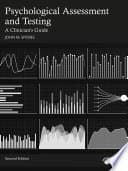Exploring Modern Defense Mechanisms in Psychoanalysis
Dive into the evolution of defense mechanisms in psychoanalysis, their modern interpretations, and their practical applications in today's world.

Books Featured in This Article
Explore the books discussed

Defense Mechanisms in Psychoanalysis: An Updated Understanding
by John M. Sherry
Exploring Modern Defense Mechanisms in Psychoanalysis
Defense mechanisms are sophisticated mental processes that often activate unconsciously to stave off conscious conflict or anxiety. Rooted deeply in psychoanalytic theory, these mechanisms have undergone significant evolution over the decades. Understanding them isn't just academically enriching—it can be a powerful tool in therapy and everyday life, helping to untangle patterns that impede personal growth and development.
Understanding Defense Mechanisms
Defense mechanisms such as repression, denial, and projection are foundational concepts in psychoanalytic theory. Serving as psychological tools, they shield individuals from internal turmoil and external threats. By scrutinizing these mechanisms, we can attain a deeper comprehension of their influence on behavior and mental health.
"Defense mechanisms are the mind's armor against psychological distress, offering a shield from unbearable realities." — Unknown
The idea is simple: when reality threatens to overwhelm, the psyche deploys these defense mechanisms to maintain psychological equilibrium. However, as useful as they are, they can sometimes lead to distortions in perception and behavior if not understood and managed effectively.
Modern Perspectives on Defense Mechanisms
In recent years, research has significantly broadened our grasp of these mechanisms. Insights from recent publications (2020-2024) show how defense mechanisms adapt in a fast-paced, digital world, interfacing with contemporary disorders and stressors. The transition from traditional Freudian concepts to modern interpretations affords us a more nuanced and applicable framework for today's psychological landscape.
"The evolution of defense mechanisms mirrors the rapid changes in our societal and digital environments." — Unknown
One modern perspective is the increasing recognition of how digital stress affects our psyche. Denial and repression, for instance, can manifest in digital contexts, leading individuals to ignore online abuse or cyberbullying. Remote working conditions during the pandemic era have also spurred interesting discussions about projection and isolation as defense mechanisms.
With the digital world presenting new avenues for psychological vulnerability, modern defense mechanisms encapsulate more technologically-influenced behaviors, enhancing relevance to current societal shifts and lifestyles.
Therapeutic Applications
Recognizing and understanding defense mechanisms is far more than an academic pursuit; it bears practical relevance in therapeutic settings. Modern therapeutic approaches, including cognitive-behavioral therapy (CBT) and dialectical behavior therapy (DBT), actively integrate these concepts to aid individuals in managing anxiety, stress, and behavioral disorders.
"Awareness of our defense mechanisms is a proactive step towards mental resilience." — Unknown
Practitioners now emphasize a holistic understanding of defense mechanisms to foster better coping strategies. For instance, addressing projection issues can lead to better relationship dynamics, while tackling repression might unveil deep-seated traumas that hinder progress.
The practical application of these concepts enables more effective therapeutic interventions, allowing therapists to tailor strategies that resonate with their clients' unique experiences and challenges. This balance of theory and practice is a cornerstone for advancing mental health treatment today.
Recommended Reads
If you wish to delve deeper into contemporary understandings of defense mechanisms, consider the following essential read:
This publication captures the evolution of these mechanisms in the modern day and offers valuable insights for both theory and practice. Whether you are a mental health professional or someone curious about the intricacies of the human mind, this book stands as a pivotal resource.
Embracing the Evolution of Defense Mechanisms
Understanding defense mechanisms and their modern evolutions can significantly enhance one's ability to navigate life's psychological challenges. Whether you are a mental health professional or someone keen on personal development, staying updated with the latest research and publications in this field is crucial. By doing so, you not only better yourself but also contribute to a broader understanding of human psychology.
Happy reading and may your journey through the fascinating realm of defense mechanisms lead to greater self-awareness and resilience!
About the Author

Book Junkie
Your go-to source for book reviews and recommendations.
You Might Also Like
Related Books
Related Articles

Transformative Reads for Teens: Navigating Life at 17
Discover the power of literature with our curated list of essential books for 17-year-olds. From fiction that inspires self-discovery to empowering non-fiction, these reads provide guidance and comfort during the tumultuous teen years. Uncover the wisdom

Unlocking the Secrets of Dark Academia: A Must-Read List
Dive into the enchanting realm of dark academia with our curated list of gripping novels that explore obsession, psychological intricacies, and haunting atmospheres. Perfect for readers seeking literary adventures akin to films like *Kill Your Darlings* a

Unlocking New Chapters: Inspiring Books for Readers in Their 50s
Discover a curated list of transformative fiction and non-fiction books designed for readers in their 50s. Embrace change, find inspiration, and celebrate life's possibilities with these insightful reads.

Unlocking the Secrets of Monastic Life: 12 Novels Rich in Religious Intrigue
Dive into the captivating world of ancient monasteries and religious power struggles through our curated selection of novels. Discover tales that will enrich your understanding of history while satisfying your love for literary intrigue.



